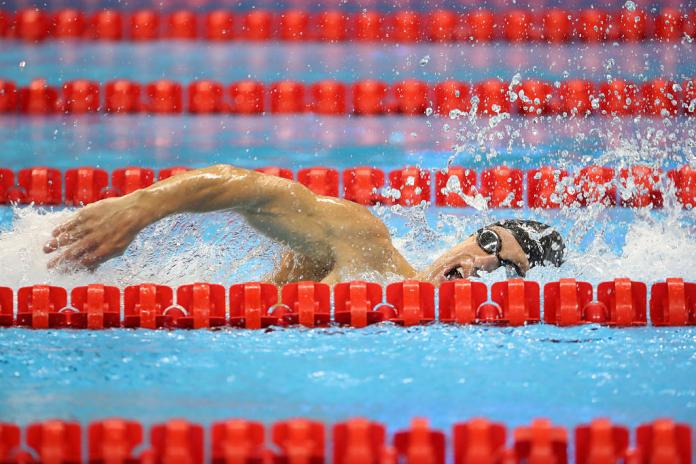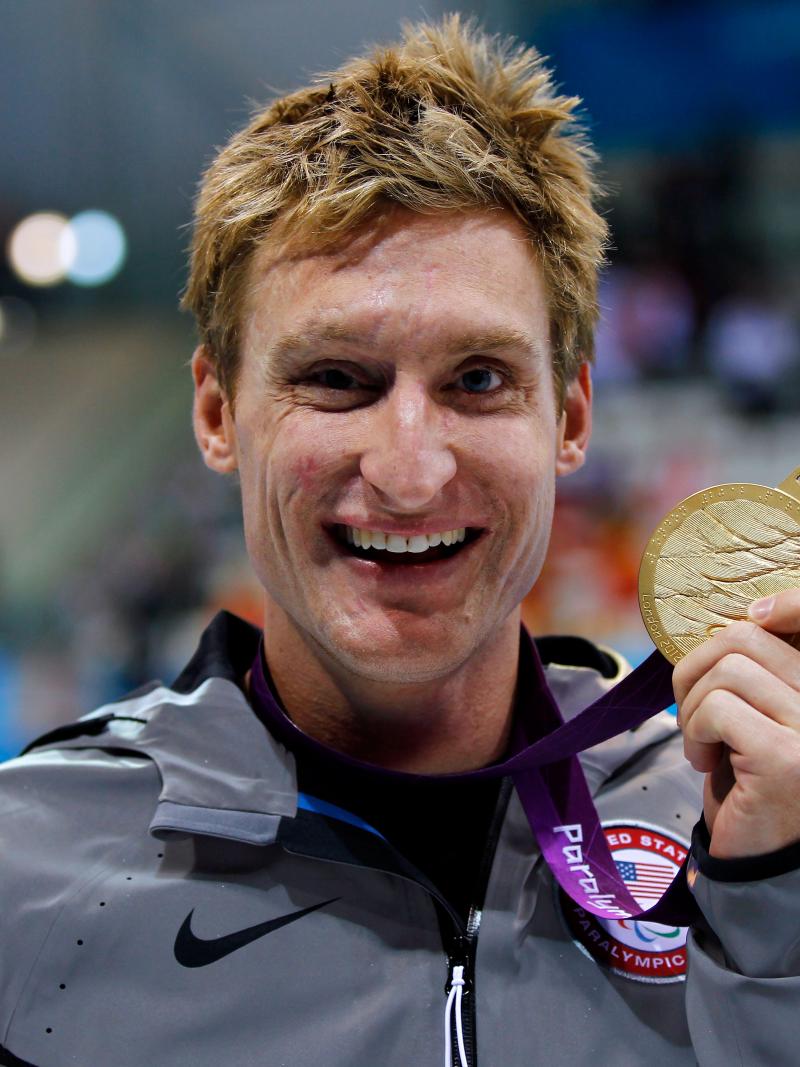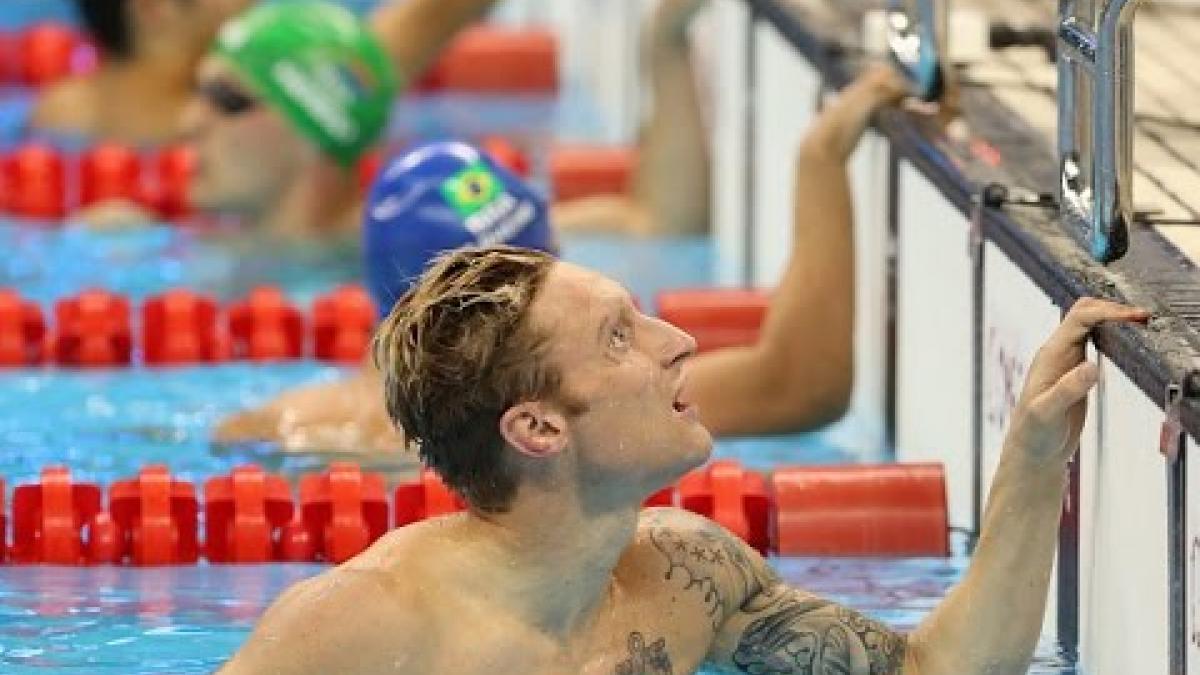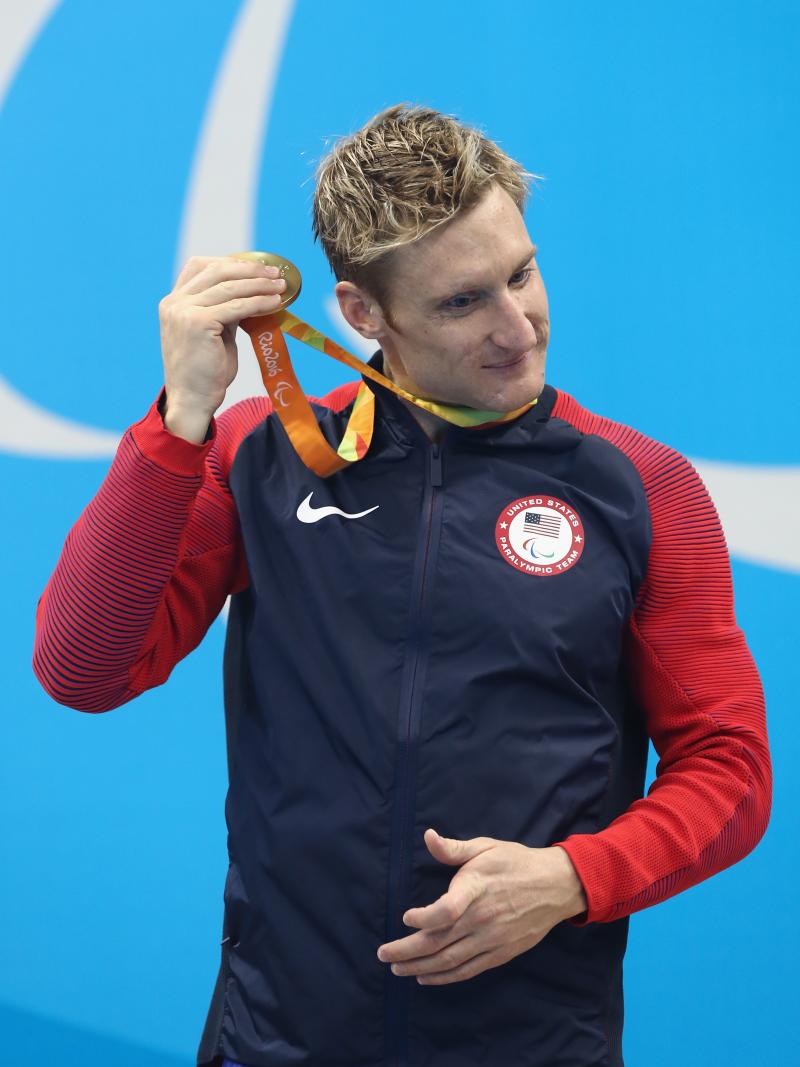From diffusing bombs to winning races: How Brad Snyder found new life in Para sports
‘Dream big. You don’t know what is possible for you until you try,’ says six-time Paralympic champion 20 May 2022Brad Snyder had a clear definition of manhood when he put on the U.S. Navy uniform to work as an officer in its bomb disposal squad.
But once he lost his vision after stepping on an improvised explosive device, that certainty about his role in the world dissolved into darkness.
Now a six-time Paralympic champion, Snyder credits Para sports for giving him a new sense of purpose and a positive outlook on life.
Family tradition
Three of Snyder’s grandparents served in the U.S. Navy and he was determined to continue that tradition.
After graduating from the U.S. Naval Academy, Snyder served tours of duty in Iraq and Afghanistan where he diffused bombs as part of the elite Explosive Ordinance Disposal unit.
An explosion that went off about a foot in front of him in September 2011 put an end to that career. It also stirred up much deeper doubts.
“Me becoming a man was all about being a part of the Navy, being a part of the military, wearing the uniform, standing up tall, doing this important mission of making the world safe. And once I was injured, I would not be able to do that ever again,” the veteran said. “I needed to figure out who I was.”
Snyder's journey of self-discovery led him back to swimming. It was a sport he started competing in as a child and continued to compete in at the Naval Academy.
After his injury, Snyder dived into the pool again, this time without the sense of sight.
Exactly one year since getting injured in Afghanistan Snyder won gold in the men’s 400m freestyle S11 event at the London 2012 Paralympic Games. He also picked up a gold in the 100m freestyle S11 and a silver in the 50m freestyle S11.
“Sports, for me, was a way to start again, re-identify myself,” Snyder said. “Swimming allowed me to re-establish a sense of confidence, not only from the inside out, but also for people looking at me, for them to be confident that I would be happy and fulfilled.”
Snyder added another three gold medals and a silver in Para swimming at Rio 2016, after which he switched to Para triathlon to give himself a new challenge.
New mission
While Snyder fell in love with Para triathlon from the first training session, the feeling was not mutual.
“I wasn’t particularly great at the beginning,” the Paralympian said. “There’s a lot of skills that I didn’t have - how to do quick transitions, how to ride a bike really effectively and efficiently. And it’s been incredibly difficult.”
Helping him get past these obstacles was his training partner, wife Sara. The pair got married in 2019 and Sara has been at her husband's side during training sessions almost every day leading up to the Tokyo 2020 Paralympic Games.
Their joint efforts culminated in Snyder winning gold in the men’s PTVI class.
“There were a lot of doubts. There were a lot of moments where I questioned whether or not it was worth it. But after crossing the finish line, I can tell you unequivocally, it’s worth it,” Snyder said. “You can think about it all day long, you can dream about it. But in real life, when it happens, it’s so much better.”
And while the weight of his eight Paralympic medals is not light baggage to carry, Snyder is standing tall again.
“Getting into Paralympics gave me an opportunity to do special things, not only for myself and my family, but also within our society as a whole,” Snyder said. “Instead of society looking at me with pity or sorrow about my disability and saying, ‘Oh, I feel sorry for you being blind’, they look at me and they see a gold medal champion, and that makes me hold my chest up high and it makes me very proud.
“The biggest limitations that we all face are the ones we put on ourselves. And I wouldn’t have ever dreamed that I was capable of any of the things I’ve accomplished in the Paralympic space 20 years ago, but here we are, and I think it all starts with just not being afraid to dream.”

 Facebook
Facebook
 Instagram
Instagram
 Twitter
Twitter
 Youtube
Youtube





